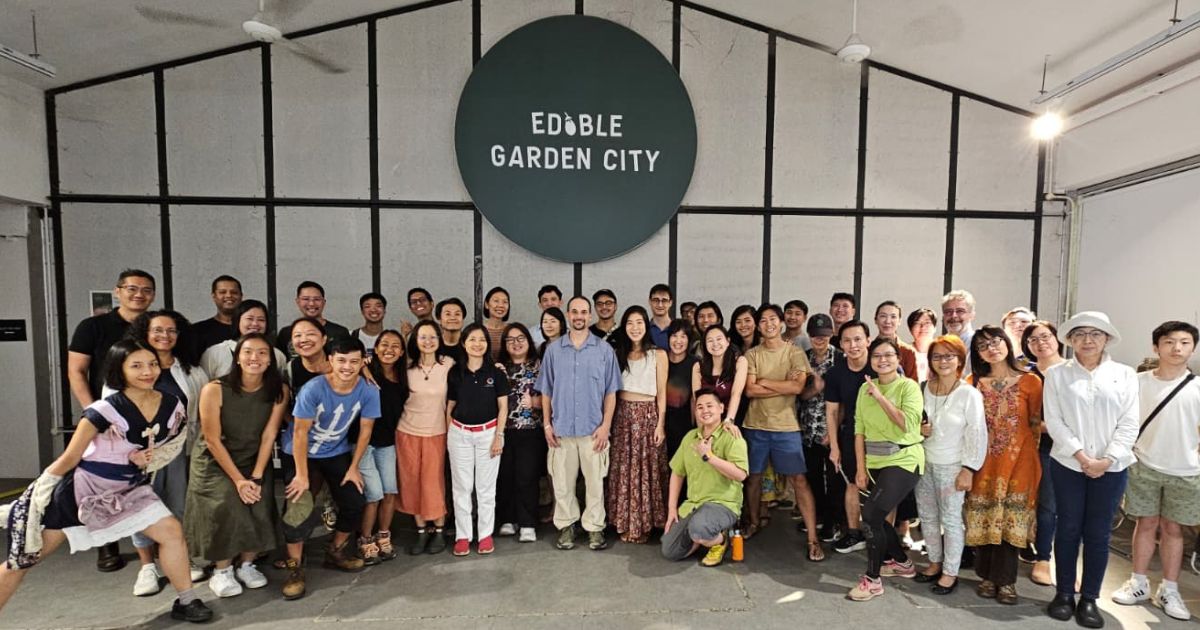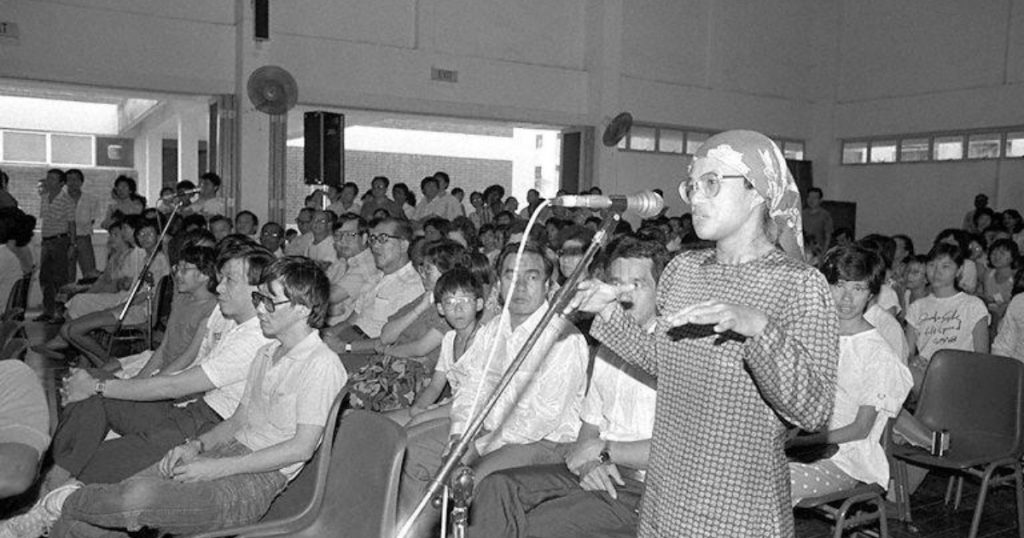WITH A permaculture talk from a world expert, and a lively discussion involving over 40 climate activists, the PAP Climate Action Group (CAG) continued building networks for a sustainable future this past weekend (24 Aug).
“There is good reason to foster a lot of small-scale permaculture projects all over our island,” said MP Foo Cexiang (Tanjong Pagar GRC), who was in attendance at the weekend event.
Entitled “An Evening with Andrew Millison: Permaculture Around the World”, the event was a free talk organised by Edible Garden City and supported by the PAP Climate Action Group.
“When we have all these small community projects, we bring the spirit and mindset of permaculture to our communities – to work with nature and create sustainable systems,” said MP Foo.
Permaculture refers to how people can build in ways that care for the land as well as its inhabitants, while enabling natural ecosystems to flourish.
MP Foo co-chairs the Green Economy pillar of the CAG, which equips Singaporeans with the insights, skills and networks to develop and capitalise on opportunities in this sustainability-focused global era. These include working alongside local urban farm Edible Garden City to link local climate activists with the renowned university lecturer Andrew Millison.
Mr Millison’s talk focused on working with existing water channels in an area when developing a settlement, giving successful real-life examples from across the world.
Lake Tenochtitlan in Mexico nourished a large pre-colonial civilisation while the Great Green Wall is combating desertification in the African Sahel. The Paani Foundation is helping conserve water in agricultural fields across villages in Maharashtra, India.
Mr Millison also made the point that successful permaculture projects are the ones which directly enhance the lives of people in their communities.
“One thing that I’ve seen that’s caused failure is when the people involved do not directly benefit, if people’s economic viability is not benefited from a project,” he shared, using the initial failure of the Great Green Wall as an example.
“If people don’t have a long-term investment in the viability of the project, that’s going to be a failure point,” he added. “If there’s not the ongoing movement for the social cohesion, understanding, and agreements needed to keep these projects alive in a difficult environment, with a lot of the pressures of hunger and the pressures of intense climate — those projects are going to fail,” he said.
“But people naturally want to see a short-term benefit,” he added about the difficulty of convincing stakeholders — such as small farmers — about the usefulness of sustainability projects.
With a focus on upskilling Singaporeans to work on cutting-edge sustainability initiatives and opportunities, the CAG’s Green Economy pillar is in prime position to help large- and small-scale permaculture projects succeed.
“Our focus for the green economy is to bring and create more jobs for Singaporeans, and growth for businesses in sectors such as renewable energy and waste reuse,” said MP Foo. “In the longer term, this will contribute towards more resilient supply chains and a broader understanding of the inter-connectedness of our economic, social and ecological systems.”
“It’s important for the whole community to come together and support permaculture projects,” added MP Foo. “The Climate Action Group is here, and we welcome anyone interested to come fight with us against the climate crisis.”
______________
Learn more about the PAP Climate Action Group here








